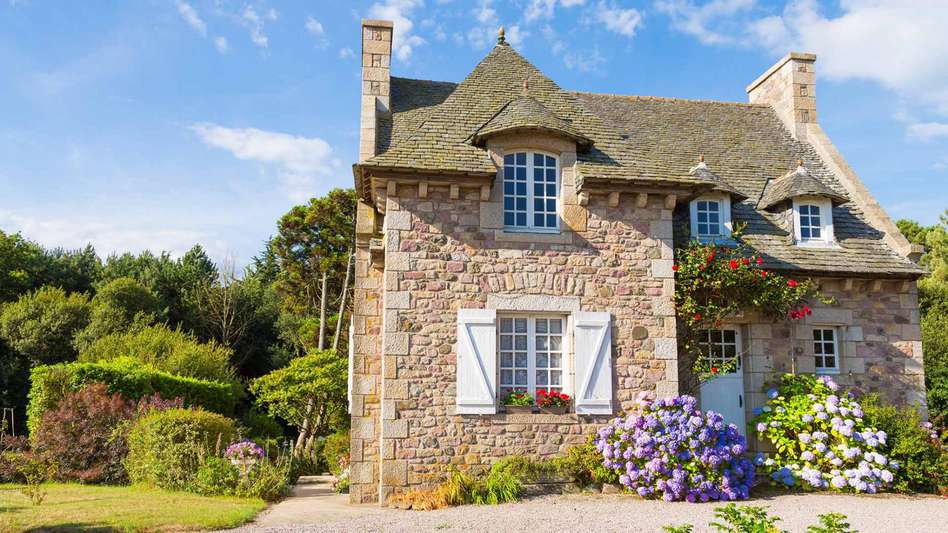How to sell a property in France

A house in France is many people’s idea of a very desirable thing to have – but what if you want to sell it?
French property transactions differ to those in the UK and we strongly recommended you get specialist legal advice before committing yourself to anything.
Despite the economy being hit hard by COVID 19, potential buyers haven't been deterred. The property market in France contunues to grow, with houes prices increasing in the most popular areas.
Many estate agents will give you a valuation for free if the agent receives the assurance that they will be in charge of the sale. The agent will ask for a mandate to be signed and it is important to make sure that this mandate is not exclusive, if you want to keep your options open; you should take care also to check the payment terms in the contract.
It is best to set the asking price at a reasonable level from the outset, as too high a price will discourage buyers who may be after a quick transaction and do not wish to spend too much time over negotiations. Also if a property is on the market for too long, this may raise suspicions on whether there might be a problem with it. Having the compulsory diagnostics (asbestos, electricity, etc) ready, or at least being able to have them carried out at short notice, is a definite plus.
Compromis de vente
In France the estate agent produces a draft first contract (which is called the “compromis de vente”). You should most definitely have it reviewed by a lawyer, who will be able to discuss its terms with you. They will make sure that necessary disclosures have been made on any issue there may be with the property, which the buyer could, later in the process, pick on for non-disclosure. Make sure the contract contains an exclusion clause for liability concerning hidden defects.
Capital Gains Tax in France
In France, Capital Gains Tax (CGT) is 36.2% including social charges (plus possibly an additional tax of 1 to 6%, depending on the amount of capital gain over 50,000 euros), for non-residents outside the EU.
The period of ownership required for a complete exemption from CGT is currently 22 years for the tax element, and 30 years for the social charges element, with a complete exemption for the main domicile, irrespective of the duration of ownership. Both exemptions are tapered.
Some people are tempted to treat the property to be sold as their main residence even when it is not. However, this is not a good idea because the tax administration is not naive and has sight of all the deeds of purchase of properties! Whether or not the vendor owns a property elsewhere does not change this, as it’s perfectly possible not to own one’s effective main residence and pay rent for it, while at the same time owning a holiday home. If the holiday home being sold is not the main residence (and thus not a holiday home), then the exemption will not apply. The same applies to artificially reducing the sale price (by way of a side payment made outside the notaire’s account, which should be absolutely avoided. At best, the tax administration will claim additional stamp duty and at worst, it could potentially requalify the sale into a disguised gift taxable at 60% (if made to an unrelated person), plus penalties. So don’t be tempted to do that!
There are borderline cases, in particular for retired individuals who do spend a great deal of time in France, where it may be somewhat unclear which is the main residence. One has to effectively reside at the French property for over six months (183 days or more), the burden of proof being on the taxpayer in case of disagreement, so it is recommended to keep supermarket receipts and any proof of stable residency in France.
In case of separation or divorce, this usually does not affect the duration of ownership, so long as one of the former couple members remains in the property.
Assuming you are liable to CGT upon the sale, it is possible to somewhat alleviate the taxable basis, by reducing the gap between the price the property was initially bought for and the price for which it is sold by adding various costs to the initial purchase price and deducting various costs from the sale price. A qualified lawyer will be able to advise on this point, and others, to do their best to get you a hassle-free sale.
At Tees we offer specialist bilingual expertise to ensure a stress free and secure process which may include:
- Pre-sale advice on the implication of your sale; considering CGT, vendors obligations and declarations
- Examination of agent’s mandate
- Examination of draft initial contract prior to signature, including seeking confirmation with local authorities in the event of any missing elements of vendors declaration.
- Review of draft deed of purchase and liaising with the Notaire regarding any changes.
- Arrange for signature with the notaire or by power of attorney here in the UK and checking draft proxies.
- Reporting on all contractual documentation and producing attestations confirming the same for French Notaire and Notary Public where required.
- Finalise arrangement for the payment of funds be it sterling or euro.
Call our specialist solicitors on 0808 231 1320
what to do next
If you want to find out more, speak with our French legal team.
We have offices in:
Cambridgeshire: Cambridge
Essex: Brentwood, Chelmsford, and Saffron Walden
Hertfordshire: Bishop's Stortford and Royston
Chat to the Author, Hervé Blatry
Avocat, French law, Bishop's Stortford office
Meet Hervé
- Areas of expertise
- Testimonials
Mrs Isabel Corbett
Preston
I just wanted to thank you for all your help in the purchase of our apartment. You and your team have made the process much more straight forward and knowing we had your knowledge and expertise behind us, has made our property purchase journey in France so much less stressful.
Peter Bottery
Saffron Walden
Before our discussions, I felt a bit like someone who had been parachuted into the middle of a minefield; after our discussions, I feel that at least I have been given a mine detector and a map!
